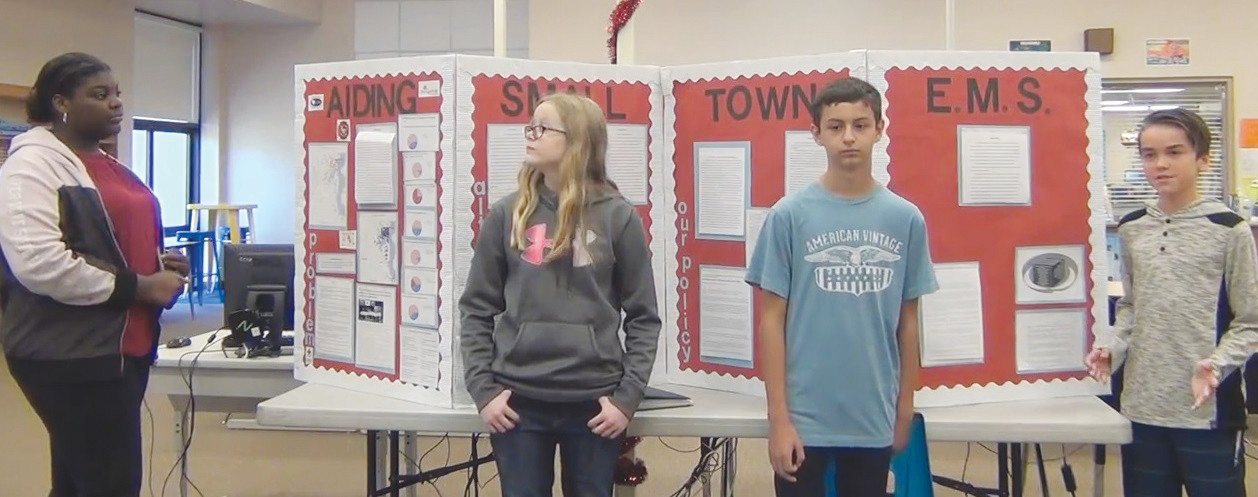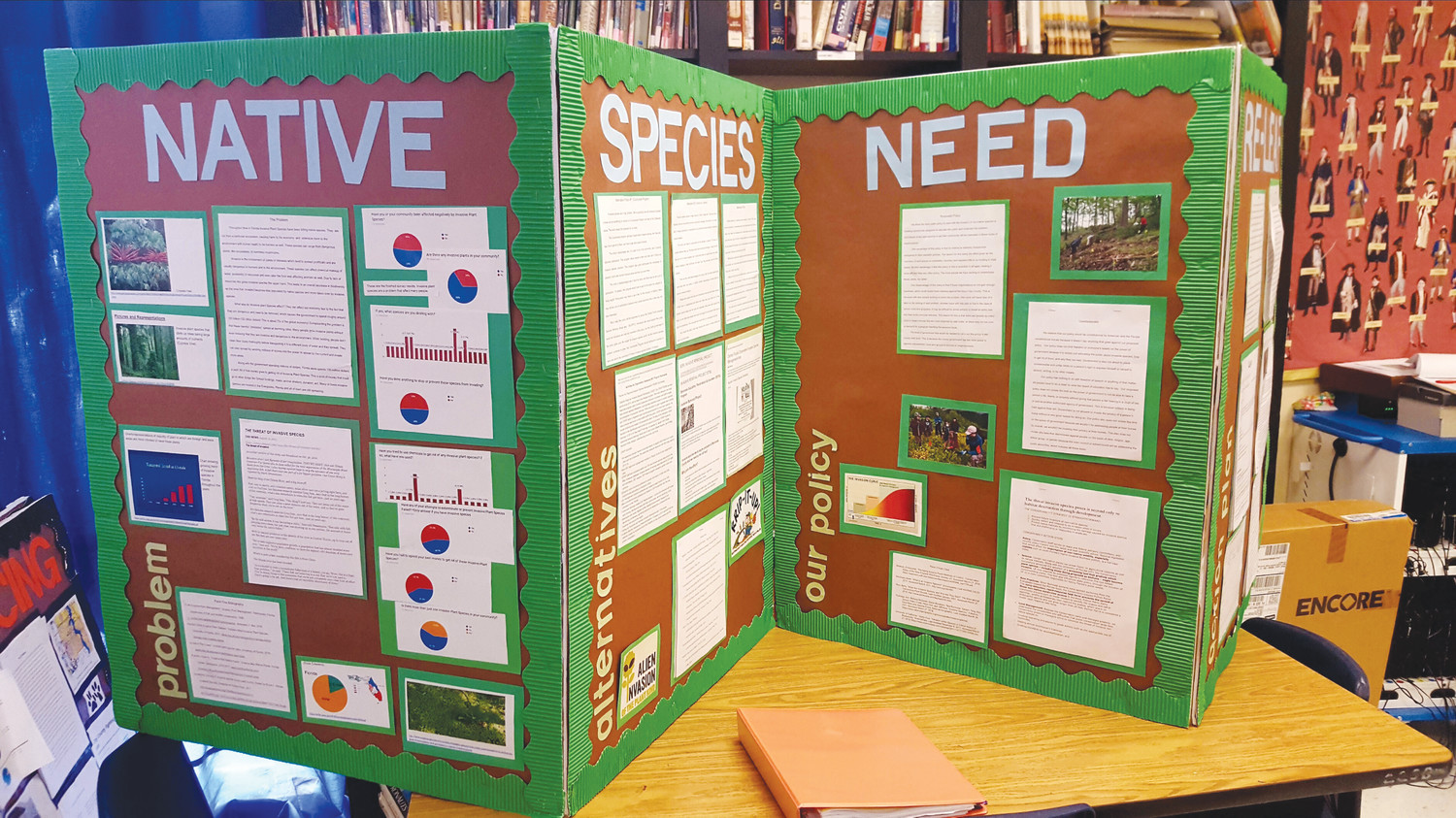Making a difference: students complete Project Citizen
ORANGE PARK – In an effort to learn about participation in local affairs, three groups of students at Orange Park Junior High presented their projects to both peers and teachers, as part of Project …
This item is available in full to subscribers.
Attention subscribers
To continue reading, you will need to either log in to your subscriber account, or purchase a new subscription.
If you are a current print subscriber, you can set up a free website account and connect your subscription to it by clicking here.
If you are a digital subscriber with an active, online-only subscription then you already have an account here. Just reset your password if you've not yet logged in to your account on this new site.
Otherwise, click here to view your options for subscribing.
Please log in to continueDon't have an ID?Print subscribersIf you're a print subscriber, but do not yet have an online account, click here to create one. Non-subscribersClick here to see your options for subscribing. Single day passYou also have the option of purchasing 24 hours of access, for $1.00. Click here to purchase a single day pass. |
Making a difference: students complete Project Citizen
ORANGE PARK – In an effort to learn about participation in local affairs, three groups of students at Orange Park Junior High presented their projects to both peers and teachers, as part of Project Citizen.
An international organization that promotes participation in democracy at a young age, Project Citizen requires students to research and identify local issues, develop an alternative solution to correct the issue with the ultimate goal of presenting their project t a legislature at the local or state level for action.
“The purpose of Project Citizen, is to make students understand the process of being an active citizen, a participant in the government,” said Cynthia Cheatwood, a 7th grade civics teacher at OPJH, who coordinates the project.
While there were three projects total, judges could only pick one project that would move forward to be presented to the legislature. Each group identified a problem, researched it, proposed a potential solution and then presented their projects to the judges on March 28. OPJH teachers and administrators served as judges.
Only 7th grade students participate in the project, although 8th grade students who participated in the previous year attended the presentations to show support. The judges use a number of criteria to pick the final topic, such as presentation, research and feasibility.
“All three projects were very, very good projects. They had surveys they put out there, they had maps and data and notebooks for the judges to review,” said Principal Al De Jesus, who acted as one of the judges.
The three topics researched by students were issues of immediate concern in Clay County. The first project focused on emergency medical services in Orange Park, with the group proposing a solution of volunteer emergency responders. The second project looked at Gold Star Families, which are families in which a relative died during military service, and their various compensations. The third project, which judges ultimately chose to move to the next round of competition, studied invasive plant species, such as kudzu, in Florida.
“Once it goes to Tallahassee, it is on the floor of the House of Representatives, where members can read what the concerns are and what the students alternatives are,” said Cheatwood. “Perhaps that will be fodder for them to work with legislation. If it gives ideas to the legislators, that’s really fantastic.”
The students main action plan for invasive plant species largely centered on enacting a county-wide education program. The program would teach students and others about the threats posed by invasive species, as well as methods of eradication. While the students will propose their project to state legislators, their main goal is to affect the community on a local level, with hopes of convincing the Clay County School Board and the Orange Park Town Council of the need to enact their program.
While only one project is selected to move forward to the legislature, both Cheatwood and De Jesus believe that Project Citizen is an important lesson about civics and participation in democracy in general.
“It helps them with that public speaking component, defending their ideas,” said De Jesus. “It gets them involved with democracy and it gets them involved with their community. They understand that they are a small part of the wheel [of democracy], but they also understand that they are part of it.”











